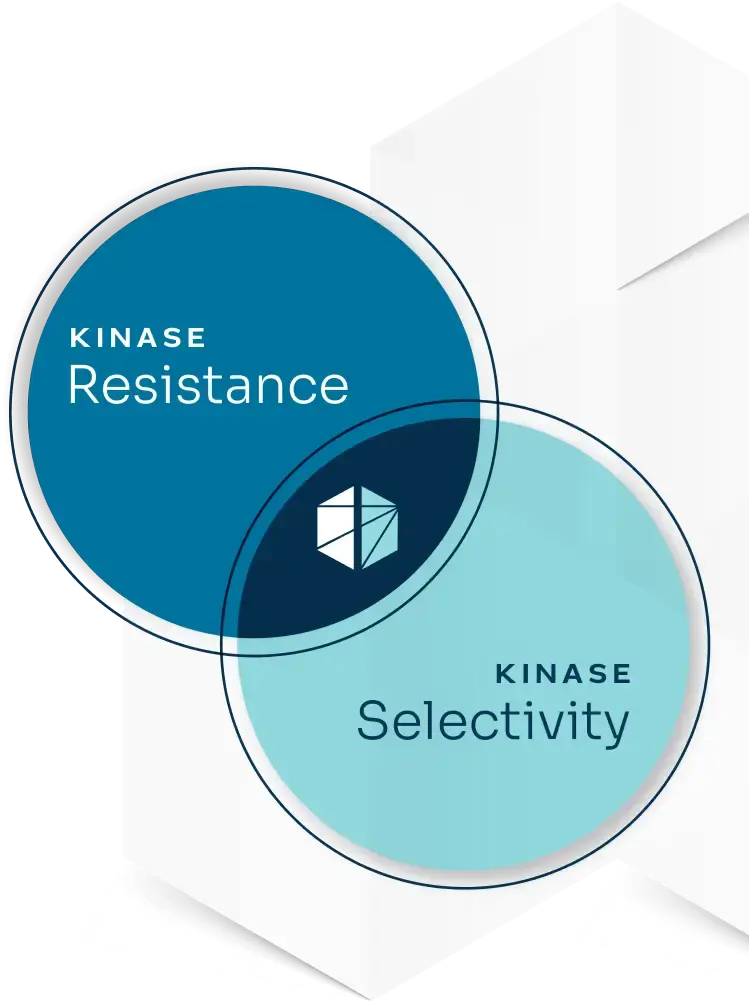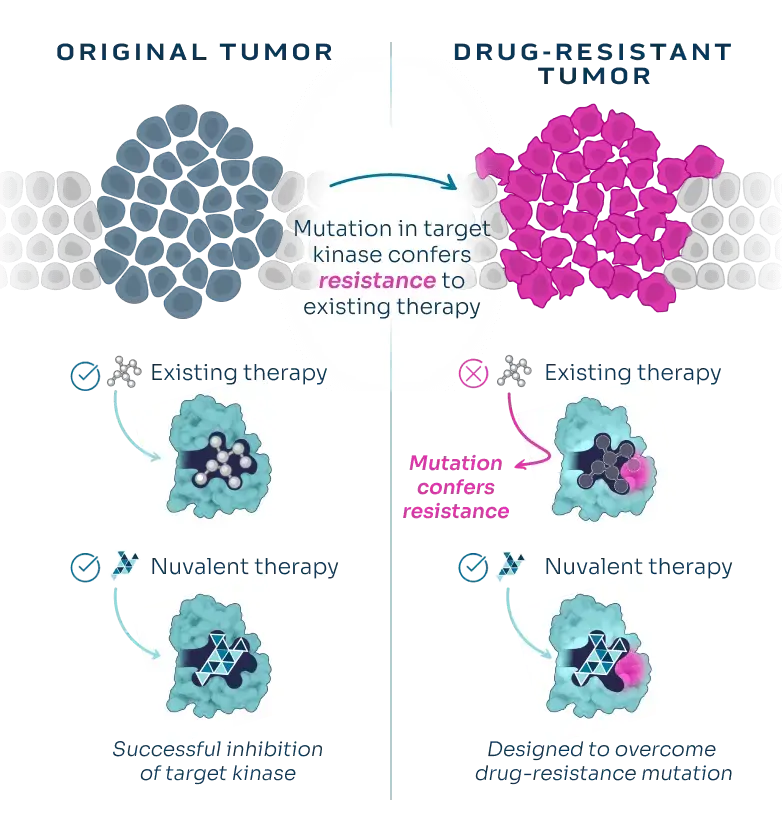Approach
Chemistry at the core
Nuvalent combines deep expertise in structure-based design with clinical insights from physician-scientists to precisely inhibit clinically proven kinase targets and solve for the dual challenges of kinase resistance and selectivity.


Kinase inhibitors have fueled the targeted therapy revolution in oncology, and remain at the leading edge of precision medicine. However, the clinical utility of currently approved kinase inhibitors is limited by two key challenges:
The Kinase Resistance Problem
Cancer cells are constantly mutating. Treatment with currently available kinase inhibitors often results in the emergence of cancer cells harboring new mutations. These mutations can provide resistance to existing therapies.
Nuvalent designs innovative molecular structures that precisely engage the target kinase in the original cancer and the mutated target kinase in the drug-resistant cancer. This enables our therapies to treat both the original tumor and tumors with emergent resistance mutations.

Nuvalent's Unique Goal
At Nuvalent, we apply a patient-focused lens to structure-based drug design. We begin by Collaborating with physician-scientists to understand the complex medical challenges that patients face today. Those insights then form the basis of our precisely targeted “product profiles” that guide each of our programs from discovery through development.”
Henry Pelish, PhD
Chief Scientific Officer






